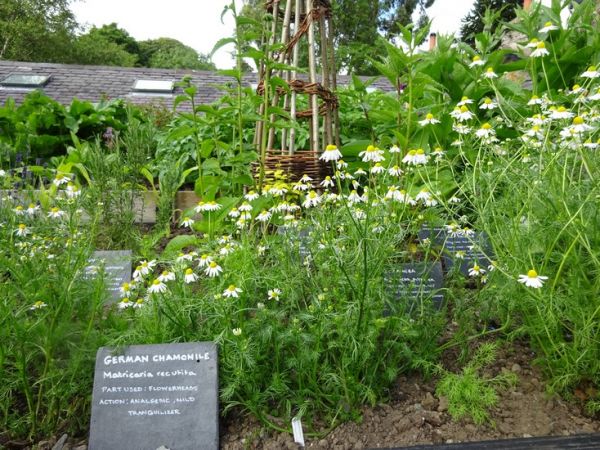Did you know that hawthorn is a heart tonic, the daisy can heal bruises, or that nettle is used to treat eczema and arthritic pain? Jane Prescott, The Manx Herbalist, tells us how plants maintain health, cure illness and soothe wounds:
In September 2018, I graduated from the Royal Botanic Garden Edinburgh with a Diploma in Herbology. This might sound as if I am following on from Professor Sprout, Harry Potter’s teacher at Hogwarts, but it has been a life-changing journey for me.
Herbology is the study of the use of healing botanicals, promoting human health and wellbeing, and also enriching connection with the natural world. These botanicals include not only culinary herbs, but also plants, many would classify as weeds, such as dandelion, as well as trees, shrubs, fungi, lichens and seaweeds.
Plants are essential to humankind in so many ways and their use to maintain health, cure illness and heal wounds evolved with us.

Many cultures around the world still rely on plants for their primary form of medicine and, although this tradition has largely been lost in Western culture, many of our pharmaceutical drugs are derived from chemicals found in plants.
Herbs can be foraged from the wild, as long as this is done legally and sustainably, or cultivated in a garden.
There is a wonderful energy in growing or collecting a herb and then harvesting it with love and gratitude and preparing a remedy for oneself or another. I also believe that this can also help in healing our relationship with our environment.
During my Herbology studies in Edinburgh, I explored whether UNESCO Biosphere Isle of Man presented an opportunity for the Island to reconnect with the Manx folk traditions of using healing herbs.
My conclusion was that there are indeed many opportunities, whether through new health care models, research into herbal plant distribution and ecology or studying the use of herbal remedies from the past with a focus on potential modern-day applications.
Our Biosphere also presents a unique opportunity to engage with the local community in learning about our healing relationships with plants and the natural world.
Although we are experiencing challenging times at the moment, there have been some positives, with more time available to spend in our gardens or local environment and an increasing awareness of the benefits of a closer relationship with nature.
There is fundamental need within us all to engage with the non-human world. After all, we are a part of the web of life, with all its inter-dependencies.
I now run teaching workshops through my business, The Manx Herbalist, which aim to spread the message about the healing power of herbs. I dream that one day the Island will have its own medicine garden where plants can be grown for healing and learning, very much in the same way as the wonderful Royal Botanic Garden in Edinburgh.


